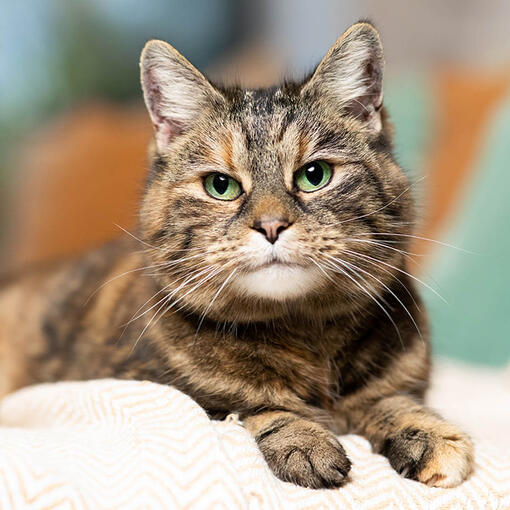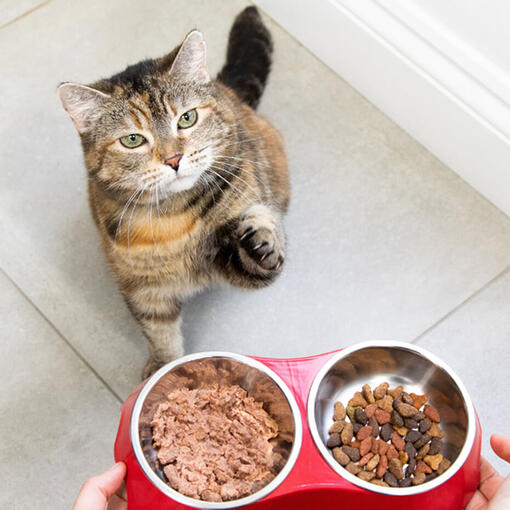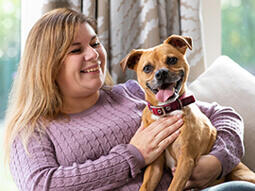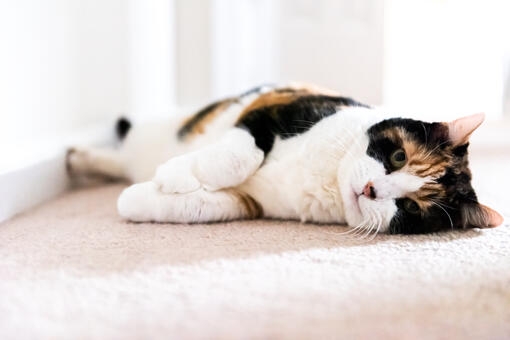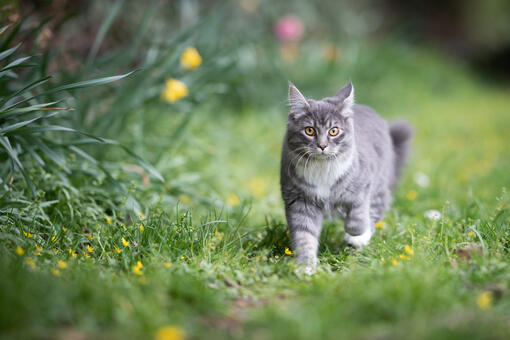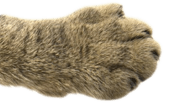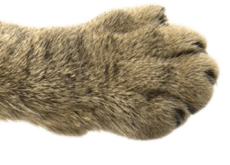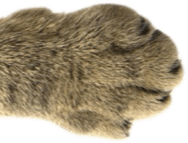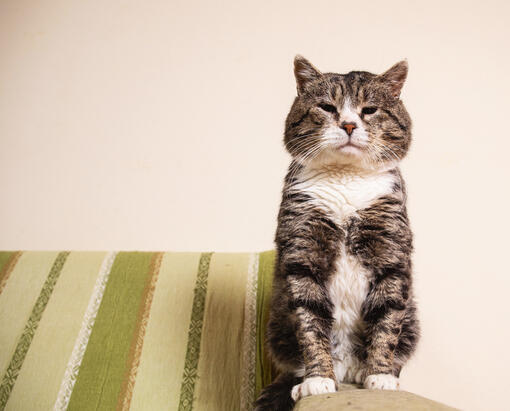
Understanding Weight Changes in Ageing Cats
First things first, we need to understand that weight changes in ageing cats is normal, and they often occur in two distinct stages.
As cats enter their senior years, they may become less active, which can lead to weight gain if we don’t adjust their diet, same as with dogs.
However, as cats become geriatric, they tend to lose weight – both fat and muscle. This loss can be due to several factors, from dental problems, that make eating painful, to a decrease in their sense of smell and taste, as well as changes in their metabolism. Studies have shown that after the age of 11, a cat's metabolic rate can actually increase, while their digestion and ability to absorb nutrients decrease. Many cats over 12 struggle to digest fat (up to a third) and protein, which can lead to weight loss even if they're eating the same amount.
This is why it's important to consider a cat's age when feeding them. Energy provision may need to be slightly decreased from 7 to 11 years old, but then increased from 12 years old onwards to account for these metabolic changes. In some cases, senior cats may actually need more food after the age of 12 to maintain a healthy weight.
Common Causes of Weight Gain and Loss in Elderly Cats
Weight gain in older cats can often come down to them not burning as much energy coupled with us feeding them too much. It's pretty similar to humans—less exercise and more snacking equals a bit of weight gain. This could potentially lead to having an overweight cat, which is why it's so important to monitor their food intake and ensure they're getting just the right amount for their age and activity level.
On the other hand, if they're losing weight, it could be a warning sign for health problems like hyperthyroidism or kidney disease. If you notice your cat is eating the same amount but still losing weight, it is important to go to the vet so they can run tests to rule out any underlying health issues.
Health Conditions Affecting Senior Cats' Weight
Quite a few health conditions like diabetes and kidney disease can cause weight changes in older cats. It's really important to keep an eye on your cat's weight because it can be an early sign of these conditions and an indication that you need to talk to your vet. Osteoarthritis, a common concern in older cats, can also contribute to weight loss. Due to joint pain, especially in the neck and shoulders, your cat might struggle to bend down to its feeding bowl. To help your arthritic cat, consider using slightly raised food and water bowls placed in easily accessible areas.
Dietary Adjustments
If your cat has become overweight, it is important to take veterinary advice on how to manage this through their diet. It isn’t just a case of just cutting their food – as that can easily lead to sometimes dangerous nutritional imbalances.
When it comes to feeding, there's no one-size-fits-all, especially for our older cats. They need a diet tailored to their age, with protein that's easy to digest and the right balance of nutrients. That's why we at Purina have developed special formulas of senior cat food designed for the dietary needs of senior cats, which can make a big difference in managing their weight.
Portion Control, Meal Scheduling & Low-Calorie Cat Food
It's not just about what our older cats eat, but also how much and how often. Smaller, more frequent meals can help their metabolism and keep their weight in check. It's kind of like having several little afternoon snacks instead of one big dinner. And when it comes to those meals or snacks, choosing low-calorie food options can be a real game-changer. Low-calorie cat foods can still be tasty and satisfying for your ageing cat, but they help prevent unwanted weight gain. So, it's not just about feeding them less, but also making smart choices about what you're feeding them.
It does of course become more challenging if you have an outdoor cat who may still hunt for snacks – or visit neighbours’ feeding bowls!
Nutritional Requirements of Senior Overweight Cats
As cats age, their nutritional needs shift. They might need more fibre for healthy digestion and less high-calorie food to prevent weight wain. They may also require more water-soluble vitamins like B and C, as these are not stored in the body and need to be replenished regularly.
However, unlike some other nutrients, protein intake shouldn't necessarily decrease with age, unless specifically recommended by your vet due to health concerns identified through blood tests. Maintaining a sufficient protein level is crucial for senior cats, as it helps prevent muscle loss and supports their unique metabolism as obligate carnivores.
On top of that, senior cats may benefit from foods enriched with omega-3 fatty acids for joint health and antioxidants for immune support. It's not just about feeding them less but feeding them the right stuff. So, when choosing a diet for your senior cat, it's important to consider all these factors and choose a well-balanced diet that meets their nutritional needs.
Encouraging Physical Activity
Suitable Exercises and Play for Senior Cats
Our senior cats might not be the Olympic athletes they used to be, but they still need to keep moving. Gentle play and exercises that don't put too much pressure on their joints are perfect. Think more like a relaxed walk in the garden rather than charging round after a high energy toy.
Tips for Motivating Older Cats to Stay Active
Getting an older cat to exercise can sometimes be as tough as getting a teenager to tidy their room! It's all about finding what motivates them, whether that's a favourite toy, easily accessible cat trees, enrichment feeding games, a sprinkle of catnip, or some interactive playtime with their favourite human—you!
If you have an indoor cat but do have outdoor space, you could even consider building a catio – an outdoor area (ideally attached to the house with a cat flap so they can access it at will) with different heights, places to snooze, and interesting things to explore. This should be fully enclosed with chicken wire or similar and this will encourage them to explore outside, get some sun, watch the world go by and move around a bit more while keeping them safe and secure.
Monitoring and Maintaining Healthy Weight
Regular visits to the vet are super important for taking care of older cats. They monitor your cat's weight and give you professional advice that's just right for your furry friend's needs.
Signs of Healthy Cat Weight vs. Concerning Symptoms
Knowing the difference between a healthy weight and when to start worrying is important. Here’s how to tell if your cat is thriving:
- Visible Waist: Look down at your cat when standing. A healthy cat will have a slight indentation above their hips, forming a visible waist. Long-haired cats might require closer inspection.
- Rib Feel: Gently run your hand along your cat's side. You should be able to feel their ribs under a thin layer of fat. If the ribs are difficult to feel or completely undetectable, your cat might be overweight. If, however, you can feel more ribs than usual, this could be a sign that they are losing weight.
Do these checks weekly so you can detect any changes early.
Remember: These are just general guidelines. Every cat is unique, and their ideal weight can vary based on breed, age, and activity level. If you're unsure about your cat's weight or have any concerns, don't hesitate to schedule a check-up with your vet. They can guide you on appropriate weight management strategies and rule out any potential health issues.

